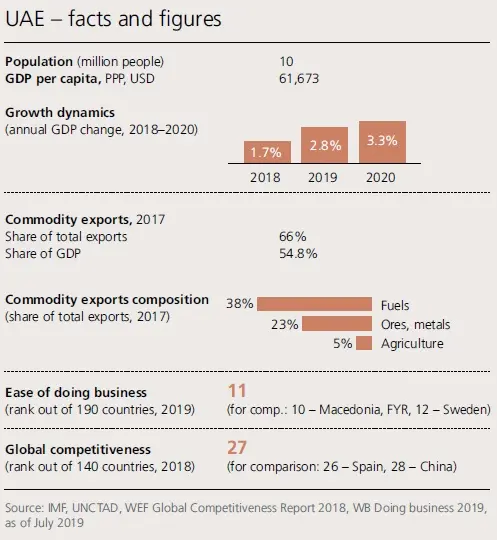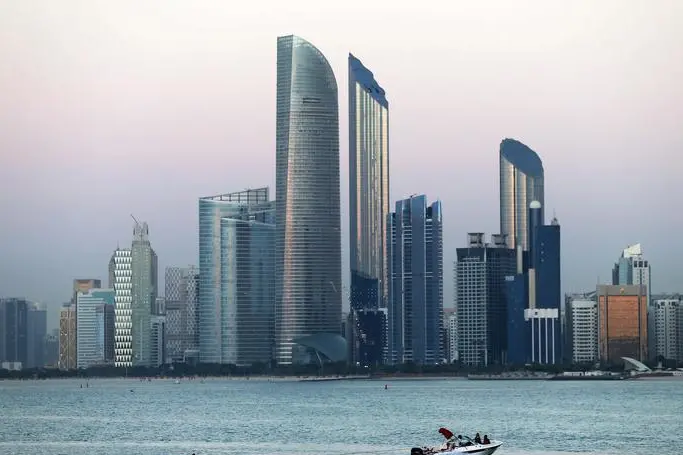PHOTO
Ongoing innovations are exposing the commodity industry to rapid change. Commodity-producing countries have received strong recommendations to adjust to these transitions, with the UAE hailed as a successful regional model for diversifying an economy and addressing challenges.
In a report titled “The Commodity Crunch Point,” leading wealth manager UBS said that hydrocarbons will remain strategic for the UAE’s growth in the next decade, as will public and external finances. The Emirates’ push for diversification has been its response to all its challenges in the current commodity transition phase, which include volatile prices, long-term energy transitions and regional tensions.
UAE has sizable hydrocarbon reserves, more than 90 percent of which come from Abu Dhabi. The hydrocarbon sector accounted for about 30 per cent of GDP and 43 percent of UAE’s government revenue in 2018.
“The UAE’s assets could finance decades worth of current fiscal deficits, but what underpins our upbeat outlook on it is its push for diversification, which has been an objective since the Emirates were formed in 1971,” UBS said in its report.
The country has since become a global financial center, an international transportation hub, a popular tourism destination, and a location of choice for multinational corporations. This stems from its business-friendly environment, excellent infrastructure, good quality of life, and openness to trade, capital, and labor flows, the report said.
"Commodity markets are intertwined with the global economy and face numerous challenges. However, we're encouraging our clients to look beyond risk mitigation and seize the opportunity such challenges entail," said Caroline Kuhnert, Head of Ultra High Net Worth for Europe, the Middle East and Africa at UBS Global Wealth Management.


On the fiscal front, the UAE government introduced new taxes such as a 5 percent VAT, to help diversify revenue away from oil. Efforts continue to support industrial activities, such as chemicals and plastics, and direct more investment into energy intensive areas like steel and aluminium. Still, the path toward diversification remains long and likely bumpy, UBS said.
According to the wealth management firm, volatile energy prices, regional geopolitical tensions, exposure to the global business cycle given the country’s economic openness, and challenges in the real estate and banking sectors are all factors worth watching.
Global uncertainties and increasing competition from neighboring countries will likely force the UAE to regularly innovate and reinvest in itself. "But its solid track record in the area of reforms makes us cautiously optimistic about its future," UBS said.
Citing examples such as the liberalization of foreign investment laws and reforms to the visa system as initiatives that could transform the Emirates into one of the world’s most competitive economies, UBS said, those best-in-class practices could serve as a blue print of policy making for other commodity-driven economies worldwide.
(Writing by Seban Scaria seban.scaria@refinitiv.com , edited by Daniel Luiz)
Our Standards: The Thomson Reuters Trust Principles
Disclaimer: This article is provided for informational purposes only. The content does not provide tax, legal or investment advice or opinion regarding the suitability, value or profitability of any particular security, portfolio or investment strategy. Read our full disclaimer policy here
© ZAWYA 2019




















